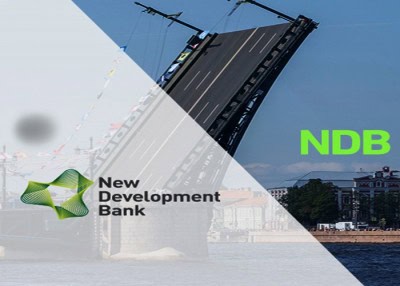New Delhi, Nov 19 : The New Development Bank (NDB) has approved $500 million (approx. Rs 3,700 crore) for the Delhi-Ghaziabad-Meerut Regional Rapid Transit System (RRTS), which aims to significantly reduce in pollution and congestion.
The Delhi-Ghaziabad-Meerut RRTS is an 82.15 km long, under-construction, semi-high speed rail corridor connecting Delhi with Meerut in Uttar Pradesh.
The RRTS corridor will have a total of 24 stations and will be elevated for around 70.5 km while 11.5 km of its stretch will be underground. Civil construction work is in progress on more than 50 km of this corridor. The 17-km long priority section of this corridor between Sahibabad and Duhai in Ghaziabad district is scheduled to commence operations in 2023, while the entire corridor will be opened to the public by 2025.
The loan agreement for $500 million was signed on Thursday between the Union Ministry of Housing and Urban Affairs, the National Capital Region Transport Corporation (NCRTC) and the NDB for funding the RRTS corridor. The proceeds of this loan will be utilised to finance rolling stock, signalling systems, operational structures, residences for operational staff, train control and telecommunication systems and other miscellaneous works of the corridor.
The 82 km corridor with a project cost of Rs 30,274 crore will be co-financed under the parallel financing arrangement with Asian Development Bank (ADB) and the Asian Infrastructure Investment Bank (AIIB). In September this year, a loan agreement of $500 million was signed with the ADB for funding the Delhi-Ghaziabad-Meerut RRTS corridor.
Speaking on the occasion, Vinay Kumar Singh, Managing Director, NCRTC, said, “NCRTC is committed towards the Prime Minister’s vision of an Aatmanirbhar Bharat. This is a unique multilateral funding arrangement that allows the Make in India provision in procurements.”
“This loan agreement with NDB will be a shot in the arm for NCRTC’s efforts to develop indigenous capacity to create a new age infrastructure for New India. With features like multi-modal integration and interoperability, the RRTS corridor will lead to polycentric development and significantly curb pollution and congestion in NCR by providing fast, reliable, secure and all-weather connectivity,” he added.
Once the project is completed, it is expected that the share of public transport will move from 37 per cent to 63 per cent in the region, which will ultimately help in curbing congestion and pollution significantly.
Disclaimer: This story is auto-generated from IANS service.

